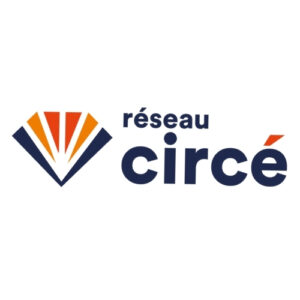
Opening up science does not simply mean removing access barriers; it also requires learning to discuss it in a new way. How can we make sure that the knowledge produced in scholarly journals is understood, shared and put to use by an ever-wider audience? This blog post covers this key issue, discussed during a recent panel.
In Canada, the production of scientific knowledge in universities is mostly publicly funded. And so, in a way, we all contribute to knowledge production, and it would then seem logical that we should all have free access to its results. But to fully benefit from knowledge, we have to go beyond simple access; we also need to understand it and put it into practice. And so, do we have to ask research to make itself more easily understandable?
That was the question addressed by Séverine Parent (Revue hybride de l’éducation), Sylvain Vigier (Le Climatoscope) and Jean-Sébastien Fallu (Drogues, santé et société), during a discussion moderated by journalist Gabrielle Anctil. Organized by the Circé Network and Érudit, this panel, titled “Sortir les savoirs des revues scientifiques : ouvrir le dialogue avec de nouveaux publics” (Bringing knowledge out of scholarly journals: creating dialogue with new audiences), took place on October 30, as part of the Journée des savoirs ouverts, an event created by Projet Collectif and the Bibliothèque et Archives nationales du Québec (BanQ).
For whom should we popularize?
As the panel opened, members of the public were invited to express their needs in terms of knowledge popularization. Several of them insisted on the importance of making research accessible to those from less privileged backgrounds or those who live in remote areas away from large urban centres. Others noted technological barriers, such as paywalls and academic subscriptions, that limit access to databases and scholarly journals.
But even when access is possible, the overabundance of articles can be discouraging: between 2010 and 2023, the number of scholarly publications globally has more than doubled (article in French). This proliferation of content makes research more visible, but also more difficult to navigate for the non-specialist public. For the general public, this “overload” can seem overwhelming and hinder access to knowledge.
The Researchers’ Dilemma
The panellists, who manage open access journals, presented their initiatives aimed at democratizing knowledge:
- The Revue hybride de l’éducation requires that every article comes with a plain-language summary and promotes the use of illustrative diagrams (see an example here).
- Drogues, santé et société publishes personal testimonies and viewpoints that help understand social issues relating to substance use, in addition to scholarly articles.
- The Climatoscope started the project ClimActualité, a general public outreach initiative aimed at linking climate knowledge to everyday news.
While these examples show that it is possible to mix scientific rigour and accessibility, the researchers also faced several challenges that hindered popularization efforts.
First, universities still place too little value on popularization: research evaluation mechanisms favour the publication of articles in prestigious international journals, which often publish exclusively in English. The primacy of English (article in French), well established in the research ecosystem in Québec, discourages the publication of popularized knowledge for French-speaking publics. Furthermore, the time and skills necessary for popularization are rarely recognized or rewarded, making it difficult to find scholars competent in that practice.
Some researchers are also hesitant to popularize, for fear of excessive simplification or betraying the complexity of their work. In science, details are often essential, and unwieldy thoroughness is a sign of rigour. However, as mentioned by one participant, maybe citizens should also be trained to appreciate nuance, value complex arguments and respect the inherent slow pace of research. In that sense, might the solution lay more in the idea of educating the public to value complex processes and to be patient?

How to Move Forward?
While there are many challenges, there are just as many solutions. The panellists highlighted the fact that the shape of the content itself plays a major role: the visual presentation of an article can help or hinder how widely it is read. Classic articles, written in black on white and arranged in columns that maximize the amount of text on a page, are very likely to put off uninitiated readers. The use of colour, illustrations and infographics can make comprehension easier and attract a more diverse readership.
Some journals have also innovated by producing podcasts, video capsules, or multimedia packages that take articles into other formats. Others open their pages to students or practitioners, whose texts, which are less formal but equally relevant, contribute to knowledge sharing.
Finally, the diamond open access model promoted by Érudit is emerging as the way forward: it allows research to be disseminated at no cost to authors or readers, ensuring equitable and sustainable access to science.
Collaborations between researchers and professional popularizers can also promote this openness: the Chaire de recherche sur la découvrabilité des contenus scientifiques en français for example has recently welcomed Gabrielle Anctil as a “resident scientific journalist” to help make its research more readable and more visible.
Circé : in service of Québec scholarly journals and open access

This panel was part of the mission of the Circé Network, which mobilizes the world of scholarly publishing in French to support Quebec’s scholarly journals in their transition to a diamond open access model.
We would like to thank Vanessa Allnutt, coordinator of the Circé Network’s Journals Hub ((until October 2025), for her valuable contribution to the design and organization of the panel, as well as Séverine Parent, Sylvain Vigier, and Jean-Sébastien Fallu for their insightful perspectives. Special thanks to Gabrielle Anctil, who moderated the discussion with insight and curiosity. Finally, we would like to thank Projet Collectif and BAnQ for organizing the Journée des savoirs ouverts, an essential forum for dialogue on knowledge dissemination.
Special thanks to Maryse Boyce for her photos during the events.